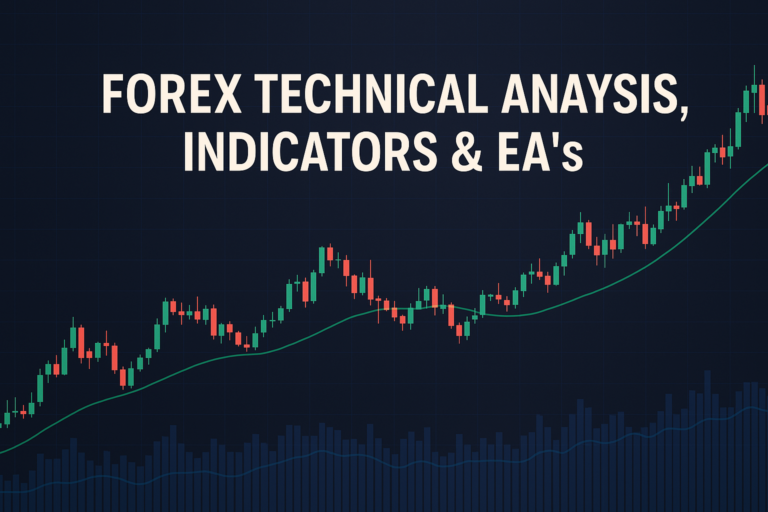
Platform crashes can disrupt Forex trading. Learn how to manage them with our simple guide to keep your trading on track.
In the world of Forex trading, one of the most frustrating issues traders face is platform crashes. Imagine you’re about to make a trade that could turn your week around, and suddenly, your trading platform goes down. It’s like being stuck in a traffic jam when you need to be somewhere important. This problem affects both beginners and seasoned traders alike, causing missed opportunities and financial losses.
Understanding platform crashes is essential for success in Forex trading. Outages can happen for many reasons, and knowing how to deal with them can save you from stress and financial setbacks. This article will guide you through understanding platform crashes, why they happen, and how to prevent them.
Understanding the Problem
Platform crashes can happen unexpectedly, leaving traders in a lurch. A platform crash is when your trading software stops working. This can happen because of technical problems, like server overloads, or market-related issues, such as high volatility. For example, during important news releases, many traders rush to place orders, which can overwhelm the trading platform. This can lead to slow response times or even complete crashes.
Imagine trading during a big event, like an interest rate decision. The market is buzzing, and you want to act quickly. Suddenly, your platform freezes. You miss your chance to buy or sell. This scenario is common, especially when many traders are online at once. Understanding why platform crashes happen helps you prepare for these situations and protect your trading capital.
Solutions
Now, let’s talk about how to tackle platform crashes. Here are some step-by-step solutions and best practices to avoid this issue:
🎯Choose a Reliable Broker🎯: Make sure your broker has a solid reputation for stability. Look for reviews and user experiences to find one that offers a dependable trading platform.
🎯Use a Backup Connection🎯: If possible, have a secondary internet connection ready. This could be a mobile hotspot that you can switch to if your primary connection fails.
🎯Monitor System Status🎯: Many brokers have system status pages. Keep an eye on these for any updates on platform performance. If you notice issues, it might be best to wait before trading.
🎯Practice on a Demo Account🎯: Use a demo account to familiarize yourself with the platform. This way, you’ll know how to navigate quickly if a crash occurs.
🎯Set Alerts🎯: Use alerts for price movements so that you can act quickly, even if your platform is slow. This allows you to make decisions without relying solely on the platform.
🎯Pro Tips🎯: If you’re an advanced trader, consider using automated trading systems. These can continue to place trades even if your platform goes down, provided your strategy is set up correctly.
🎯Warnings🎯: Be cautious during high-impact news events. These times are when platforms are most likely to crash. If you can, avoid trading during these periods or lower your trade size.
By implementing these strategies, you can reduce the risk of platform crashes affecting your trades. Remember, preparation is key!
Frequently Asked Questions
1. 🎯How do I detect this issue in real-time?🎯
You can monitor your platform’s performance by keeping an eye on response times. If it feels slow or unresponsive, it might be a sign of a crash. Additionally, you can check online forums or social media for reports from other traders.
2. 🎯Can brokers legally do this?🎯
Brokers are required to provide a stable trading environment. If crashes happen frequently, it could indicate poor service. Traders have the right to choose a broker that meets their needs.
3. 🎯What tools can I use to prevent this?🎯
Tools like a reliable internet connection, backup systems, and alert systems can help you avoid problems. Using trading journals can also help track when and why crashes occur.
4. 🎯Is this problem more common in specific market conditions?🎯
Yes, platform crashes are more common during high volatility events, like major news releases or economic data announcements. Being aware of the economic calendar can help you anticipate these times.
5. 🎯What should I do if my platform crashes during a trade?🎯
If your platform crashes, first try to reconnect. If it doesn’t work, switch to your backup connection. Always have a plan in place to minimize losses, like using stop-loss orders.
6. 🎯Can I get compensation for losses due to platform crashes?🎯
It depends on your broker’s policy. Some brokers may offer compensation for losses caused by technical failures, while others may not. Always read the terms and conditions.
7. 🎯How do I choose a reliable trading platform?🎯
Look for reviews, check the broker’s history, and consider platforms that offer a demo account. Testing it before committing can help ensure it meets your needs.
Conclusion
In summary, platform crashes are a significant issue in Forex trading but can be managed. Understanding the causes and implementing the right strategies can help you avoid these frustrating situations. Stay informed, and continue improving your trading skills to navigate these challenges successfully.
Don’t let platform crashes deter you from your trading journey. Stay proactive, learn from each experience, and keep pushing forward. Your success is just around the corner!
– For more insights into forex trading, check out Investopedia and FXStreet.




